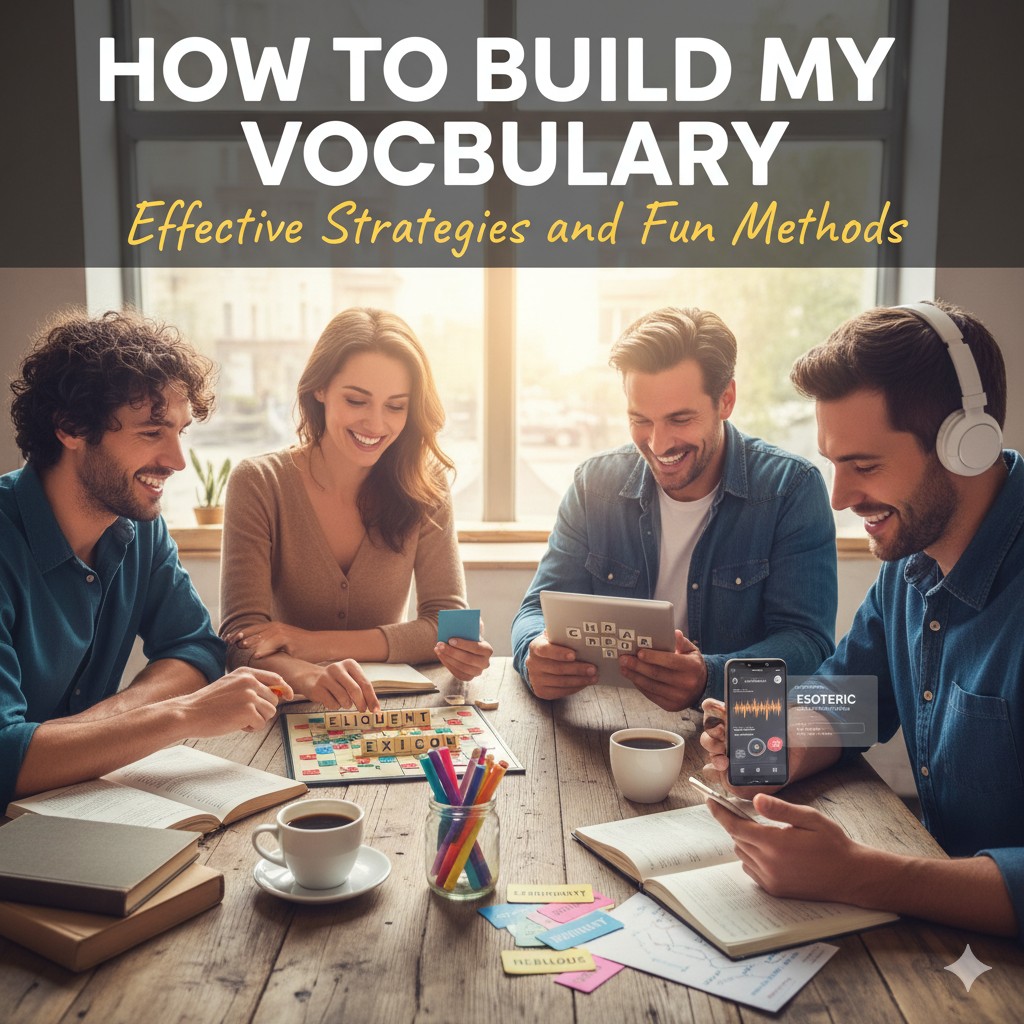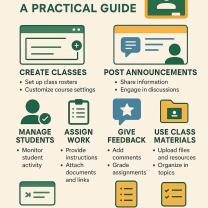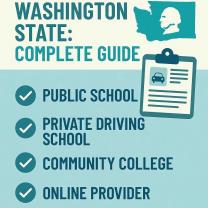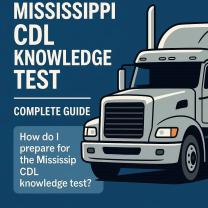How to build my vocabulary?
A rich vocabulary is more than just a list of big words; it's a powerful tool that sharpens your thinking and amplifies your voice.
For many, the process of vocabulary building conjures up images of rote memorization and dusty dictionary pages. However, expanding your word bank doesn't have to be a tedious academic exercise. The most effective strategies for learning new words are practical, engaging, and woven seamlessly into your daily life.
This article will guide you through proven methods—from structured learning and using context clues to fun games and the best apps for vocabulary building. You'll discover how to make vocabulary growth a consistent, enjoyable, and genuinely rewarding habit.
How to Build My Vocabulary Effectively?
The secret to lasting vocabulary expansion isn't cramming; it's consistency. Learning 50 words in one weekend is far less effective than learning two or three words every day for a month. Daily, focused practice ensures that new words move from your short-term memory into your long-term word bank.
Here are the cornerstones of an effective vocabulary-building routine:
Practice Daily and Be Consistent: Instead of occasional, lengthy study sessions, dedicate 15 to 30 minutes every day to vocabulary practice. This steady drip is much more effective than a sudden flood.
Keep a Personal Vocabulary Journal: Don't just underline new words—actively capture them.
Keep a dedicated notebook, or use a digital word bank (a simple document or spreadsheet) to record new words, their definitions, and, most importantly, an example sentence written by you. Focus on Active Usage: It's one thing to recognize a word (passive vocabulary); it's another thing entirely to use it correctly in conversation or writing (active vocabulary). Once you learn a new word, make a conscious effort to use it at least three times in the next 48 hours. This active practice cements the word's meaning and usage in your memory.
What Are Some Good Strategies for Learning New Words?
While consistency is key, the right study strategies for learning new words can multiply your efforts and improve your long-term retention.
Read Widely and Intentionally
Reading remains the single most powerful tool for vocabulary building. When you read, you encounter words in their natural habitat, which helps you understand their subtle shades of meaning and usage.
Vary Your Material: Don't stick to just one genre. Mix fiction, historical non-fiction, scientific articles, and well-written news reports. Each genre offers a unique set of technical and descriptive terms.
Engage with High-Quality Writing: Seek out authors and publications known for their rich language. The more complex the writing, the more opportunities you'll have to encounter sophisticated terminology.
Leverage Spaced Repetition Systems (SRS)
Spaced Repetition Systems are algorithms designed to show you information (like flashcards) right before you're about to forget it.
Digital or Physical Flashcards: Create flashcards with the new word on one side and the definition and an example sentence on the other. Use an SRS app (see the section below) to handle the scheduling for you, or use a simple box system for physical cards.
Group Words for Better Memory
The brain loves connections. Learning words in isolation is difficult; learning them in related groups is easier.
Thematic Grouping: Group words by subject (e.g., words for arguing: contend, refute, assert, dispute) or by nuance (e.g., words for being happy: elated, ecstatic, content, euphoric).
Root Words and Affixes: Learn common Latin and Greek root words (-ped- meaning foot, -bene- meaning good) and common prefixes and suffixes (un-, pre-, -tion, -able).
Understanding these building blocks allows you to deduce the meaning of dozens of unfamiliar words.
How Can I Use Context to Understand New Words?
When you encounter an unfamiliar word while reading, your first move should not be to reach for a dictionary. Instead, the most valuable skill you can develop is the ability to use context to learn vocabulary.
The Art of the Educated Guess
The context—the words and sentences surrounding the unfamiliar term—often provides significant clues to its meaning.
Synonyms: The sentence might define the word using a familiar term. Example: “The ancient monument was antediluvian, or extremely old.”
Antonyms: The sentence might contrast the new word with a known word.
Example: “Unlike his sister, who was slovenly, he was always fastidious about his appearance.” Explanation or Example: The sentence or a nearby one will simply explain what the word is. Example: “She was known for her perspicacity; she could instantly see the heart of any complex issue.”
The Confirmation Step
Once you've made an educated guess, then you can consult a dictionary or an online search. This is crucial for two reasons:
It confirms or corrects your guess. Sometimes context can be misleading, and you need to ensure you've grasped the true meaning.
It makes the word stick. The active process of guessing, confirming, and correcting forces your brain to engage with the word more deeply than simply looking it up right away.
What Are Some Fun Ways to Expand My Vocabulary?
Vocabulary growth doesn't have to be limited to desk time. Integrating playfulness can make the process magnetic and significantly more effective. These are excellent, fun ways to expand my vocabulary.
Dive into Word Games: Classic games like Scrabble, Boggle, and daily newspaper Crosswords are fantastic for activating your vocabulary. Digital options like the New York Times’ Spelling Bee or Wordle are also fun, quick ways to keep your word knowledge sharp.
Watch and Learn with Subtitles: When watching foreign or complex English-language movies or TV shows, turn on the subtitles. If you encounter an unfamiliar, intriguing word, pause the show, jot it down, and look it up later. This links the word to a visual context, aiding recall.
Tune in with Podcasts and Music: Choose podcasts or audiobooks on subjects you find interesting, especially those with high-level speakers. Note any compelling or unusual word choices. For music, look up the lyrics to your favorite songs and see how the artists use language to create imagery.
Set Fun Challenges: Challenge a friend or language partner to a “New Word of the Week.” Each person has to use the designated word (e.g., quixotic or ephemeral) naturally in conversation or a text message several times before the week is out.
What Are the Best Apps for Building Vocabulary?
Digital tools provide an immediate, structured, and often gamified way to enhance your word learning.
| App Name | Primary Strength | Best For |
| Anki | Spaced Repetition System (SRS) for ultimate control and long-term retention. | Users committed to serious, self-directed learning and customizable decks (e.g., test prep). |
| Quizlet | Simple, user-friendly interface for creating and studying flashcards and quizzes. | Quick, multi-modal learning and collaborative studying with existing class sets. |
| Memrise | Contextual learning using videos and native speakers to teach words in use. | Learning words alongside their real-world usage and pronunciation. |
| Magoosh Vocabulary Builder | Focused word lists specifically geared toward standardized tests (GRE, SAT). | Test takers who need to master high-frequency academic words quickly. |
| WordUp | Teaches words based on your current knowledge and provides video examples of words in use. | Discovering words you need most and seeing them used in context from real media. |
Apps that utilize gamification, turning learning into a fun challenge, tend to keep users coming back. Look for apps that provide context-based examples rather than just a dry definition, as this significantly aids memory and proper usage.
FAQ: Your Top Vocabulary Questions Answered
How many new words should I learn per day?
Focus on quality over quantity. Learning 2–3 new words daily is a sustainable, high-quality goal. This equates to over 700 new words a year, most of which you'll retain because you've learned them deeply and practiced using them.
What’s the fastest way to improve vocabulary?
The fastest way is not a secret shortcut but a commitment to an intensive, balanced routine. This means:
Massive, intentional reading.
Active use of Spaced Repetition System flashcards.
Daily practice of using the words in speaking and writing.
Is reading enough to build vocabulary?
No, reading alone is passive. You'll recognize words, but you won't necessarily internalize them or be able to use them actively. For true vocabulary growth, you must pair reading (discovery) with active recall (flashcards, word challenges) and active usage (speaking and writing).
How can I remember words long-term?
Long-term memory requires three things:
Spaced Repetition: Reviewing words at increasing intervals.
Active Usage: Using the word in multiple contexts, ideally emotional or memorable ones.
Mnemonic Devices: Creating funny images, stories, or associations to link the word to its meaning.
Conclusion
The journey of how to build my vocabulary is a rewarding, lifelong pursuit that pays dividends in every area of your life. Vocabulary growth isn't about fleeting success but about steady practice, meaningful usage, and making the learning process genuinely enjoyable.
By combining the structured strategies—like consistent daily practice and Spaced Repetition Systems—with fun, engaging approaches—like word games and context-based app learning—you will transform your communication skills. Start small, be consistent, and watch as your confidence and clarity of expression grow with every new word you master.













AppReviewerMax
on October 02, 2025I've been looking for the **best apps for vocabulary building**. This review is helpful! I use Quizlet now, but I might check out WordUp since it focuses on words I actually need based on my current knowledge. Thanks for the breakdown.